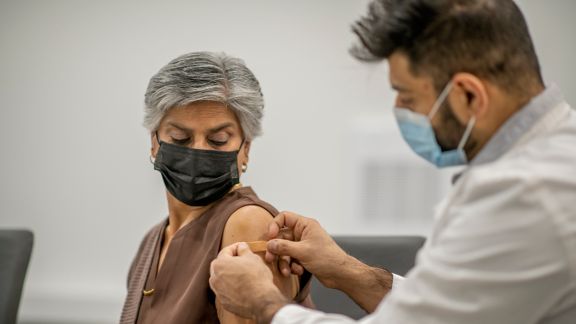J-RISE: Eliminating Barriers to HIV Services Among BMSM

Problem
Status-neutral interventions for Black justice-involved adults may improve access to HIV services, but they have not yet been rigorously evaluated.
Prevention and care services are critical for people affected by HIV who are also involved in the justice system. They are also more likely to be unemployed, underemployed, or engaged in the informal economy, which increases their likelihood of becoming reincarcerated.
Interventions to support people regardless of HIV status (also called “status-neutral”) are a promising practice to improve access to HIV services. Status-neutral interventions are a holistic or whole-person approach to delivering services that also address social and structural barriers to HIV services like employment, transportation, or intersectional stigma that many Black justice-involved individuals experience.
While status-neutral interventions show promise in improving access to HIV prevention and care services, they have not yet been rigorously evaluated. It is important to build this evidence base, and document implementation strategies that can support their adoption and delivery among this population.
The overarching goal of the J-RISE study is to evaluate the effectiveness and implementation of two bundled, status-neutral interventions to improve access to HIV and employment-related services for justice-involved individuals.
Solution
NORC is supporting the implementation and evaluation of the J-RISE interventions.
NORC efforts are guided by two implementation science frameworks: CFIR— Consolidated Framework for Implementation Research and RE-AIM—Reach, Effectiveness, Adoption, Implementation, Maintenance. The status-neutral interventions for J-RISE are designed to improve HIV, pre-exposure prophylaxis (PrEP), and/or employment-related outcomes among Black justice-involved adults at risk for HIV. These interventions include:
- Transitional case management. Case managers will support access to HIV care, prevention, and supportive services.
- Employment navigation. Case managers will support employment, training, and career development goals.
- Contingency management. Providing financial incentives for the achievement of specific HIV care, treatment, and prevention-related milestones.
- Employer outreach and support. Providing education and outreach to local employers and staffing agencies to support the needs of formerly incarcerated individuals.
J-RISE will be implemented in three jurisdictions: Cook County, IL; Baton Rouge, LA; and New Orleans, LA.
Result
Results will help practitioners and policy makers improve care for people involved with the justice system.
The success of the J-RISE project will build evidence on the efficacy of using upstream approaches to improving HIV, PrEP, and/or employment related outcomes among Black men who have sex with men (BMSM), Black transgender and gender diverse individuals, and Black cisgender women who have sex with men, who are currently incarcerated, on probation/parole, or have a history of negative interactions with law enforcement.
The goal of this project is to learn more about the benefits of the bundled interventions, and to understand how they can be implemented successfully in a variety of contexts. We anticipate results in 2027.
Project Director
Related Tags
Project Leads
-
Michelle Johns
Senior Research ScientistProject Director -
Sarah Hodge
Research ScientistProject Manager -
Christopher La Rose
Senior Research ScientistImplementation Science Lead -
David Rein
Senior FellowCost Analysis Lead












